Youth Voices
In this research, we are working with schools around the country to understand how young people in Year 10 feel about social issues, and how they express their thoughts, feelings, and values on these issues inside and outside school. We’re focusing particularly on issues of race and faith equality in this study. We know that there are other important issues, like gender equality, the cost of living, and climate change. These will come up during the research too of course.
We express our feelings and ideas in multiple ways, not just words. Some feelings and ideas are difficult to capture using words alone. Below, you’ll find some of the images created by young people during the course of our research. These include images of objects that are important to young people and express their identity, values, struggles, and feelings about the world. All of them are created with young people from religiously and/or racially minoritised backgrounds.
We recognise that the research space can sometimes offer a somewhat unique place for young people in Year 10 to share things in ways that everyday pressures of preparing for exams may not. At the same time, we hope these images and narratives are inspiring to young people and their teachers and communities in their display of young people’s empathy and creativity around race and faith equality issues.
Collages
Part of the research involved workshops with young people in four different secondary schools, two of each in two English cities. After discussing issues around equality, identity inside and outside school, young people created collages to express some of their views, values and experiences. The ‘stop/start’ prompt used in some of the visuals below was inspired by the work of the AGENDA team, who have created excellent resources for engaging young people in positive relationships education and research. This included the use of ‘stop/start’ traffic light plates to engage young people in sharing messages about what they want to stop and to start in relation to relationships and sexuality education (RSE), and the equality issues associated with RSE.
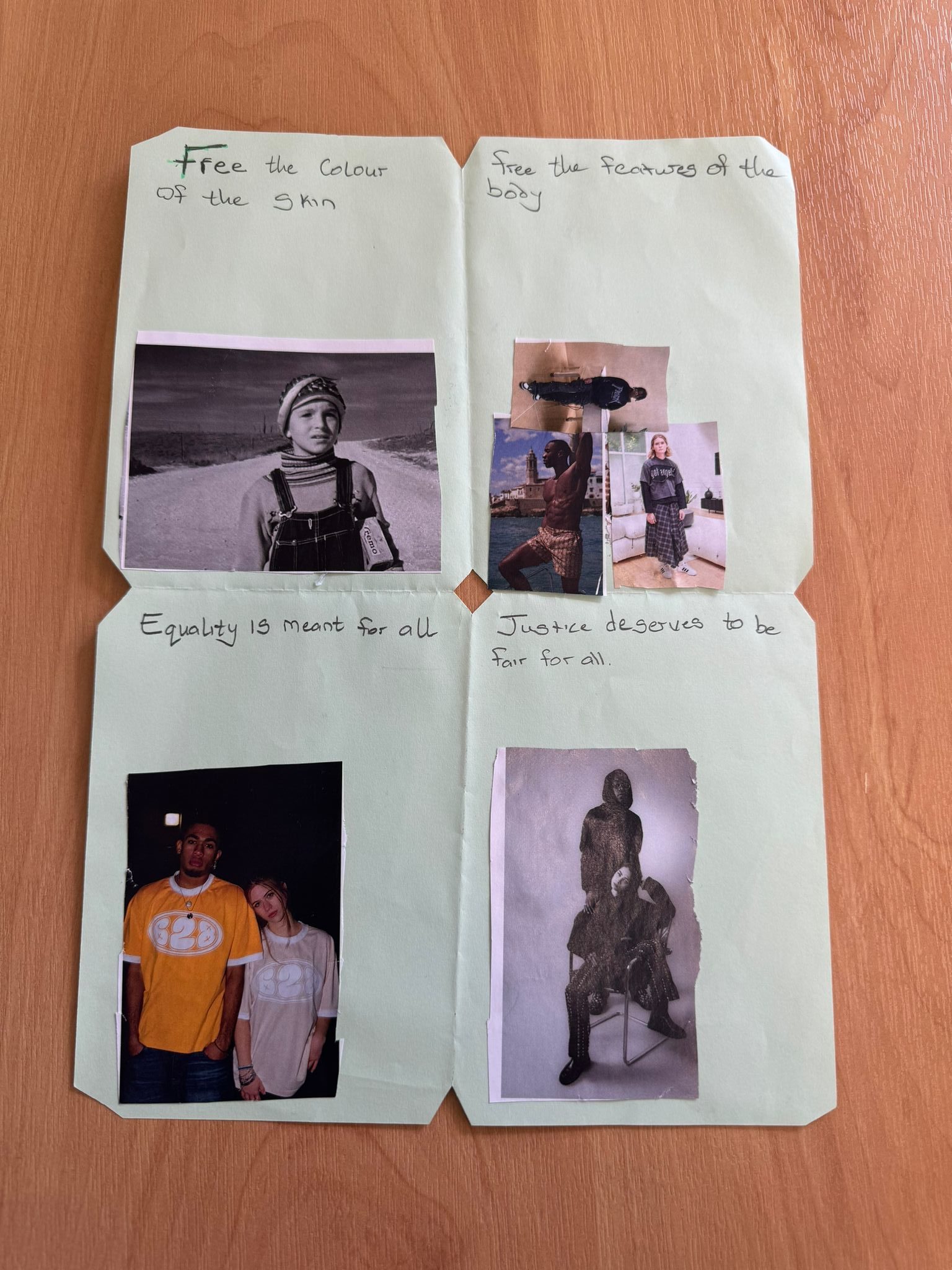
Free the Colour of the Skin | Free the Features of the Body | Equality is Meant for all | Justice Deserves to be Fair for All
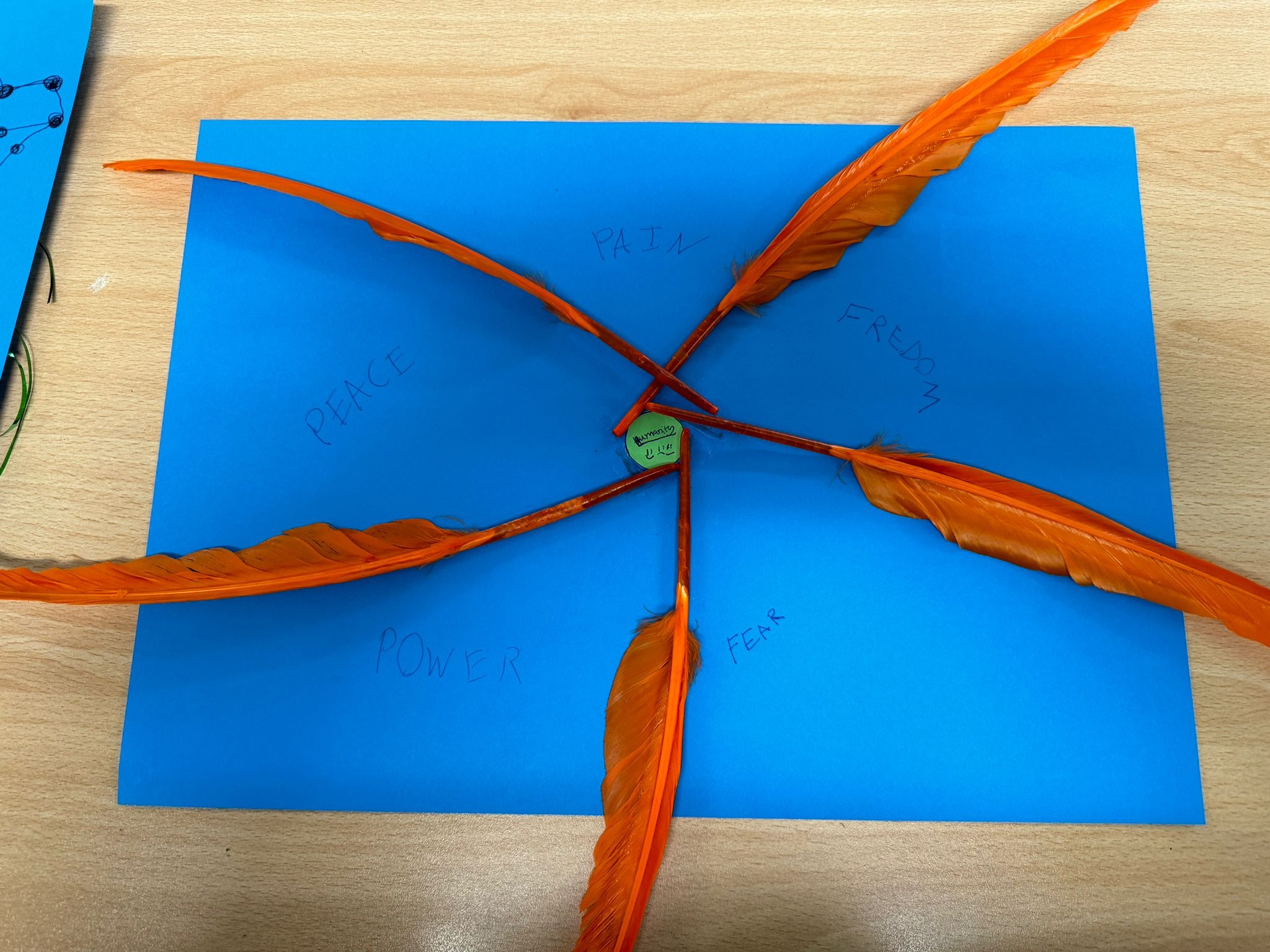
Peace | Pain | Freedom | Fear | Power
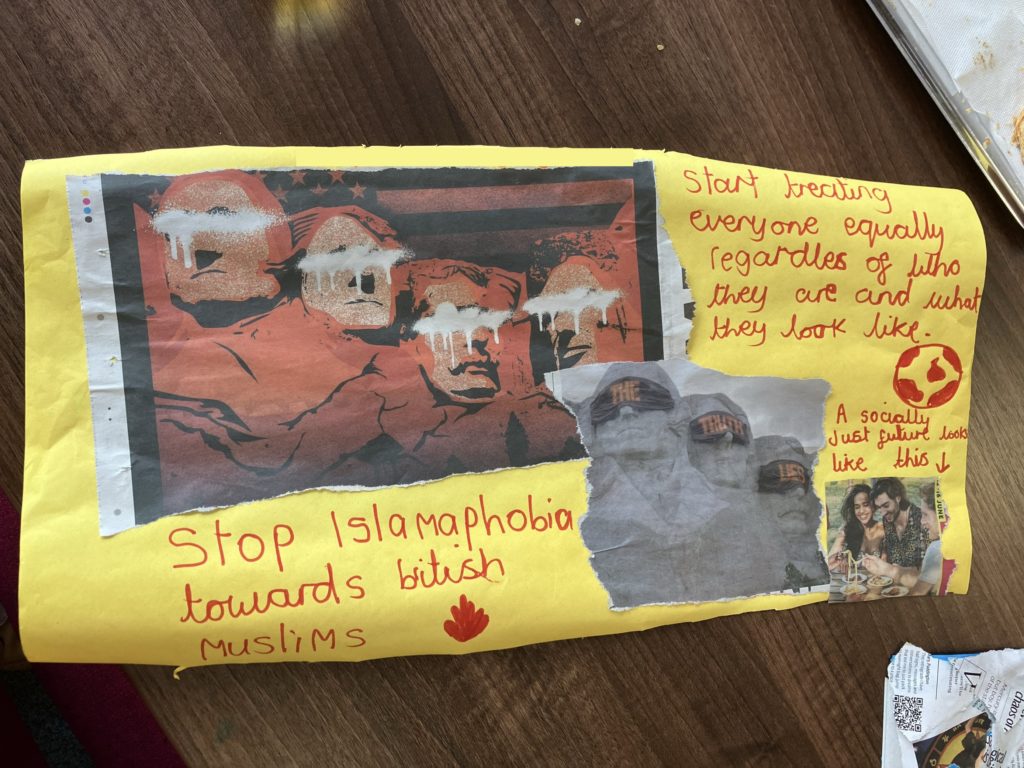
Stop Islamophobia towards British Muslims | Start treating everyone equally regardless of what they look like. A socially just future looks like this (picture of ethnically diverse group of friends enjoying food together)
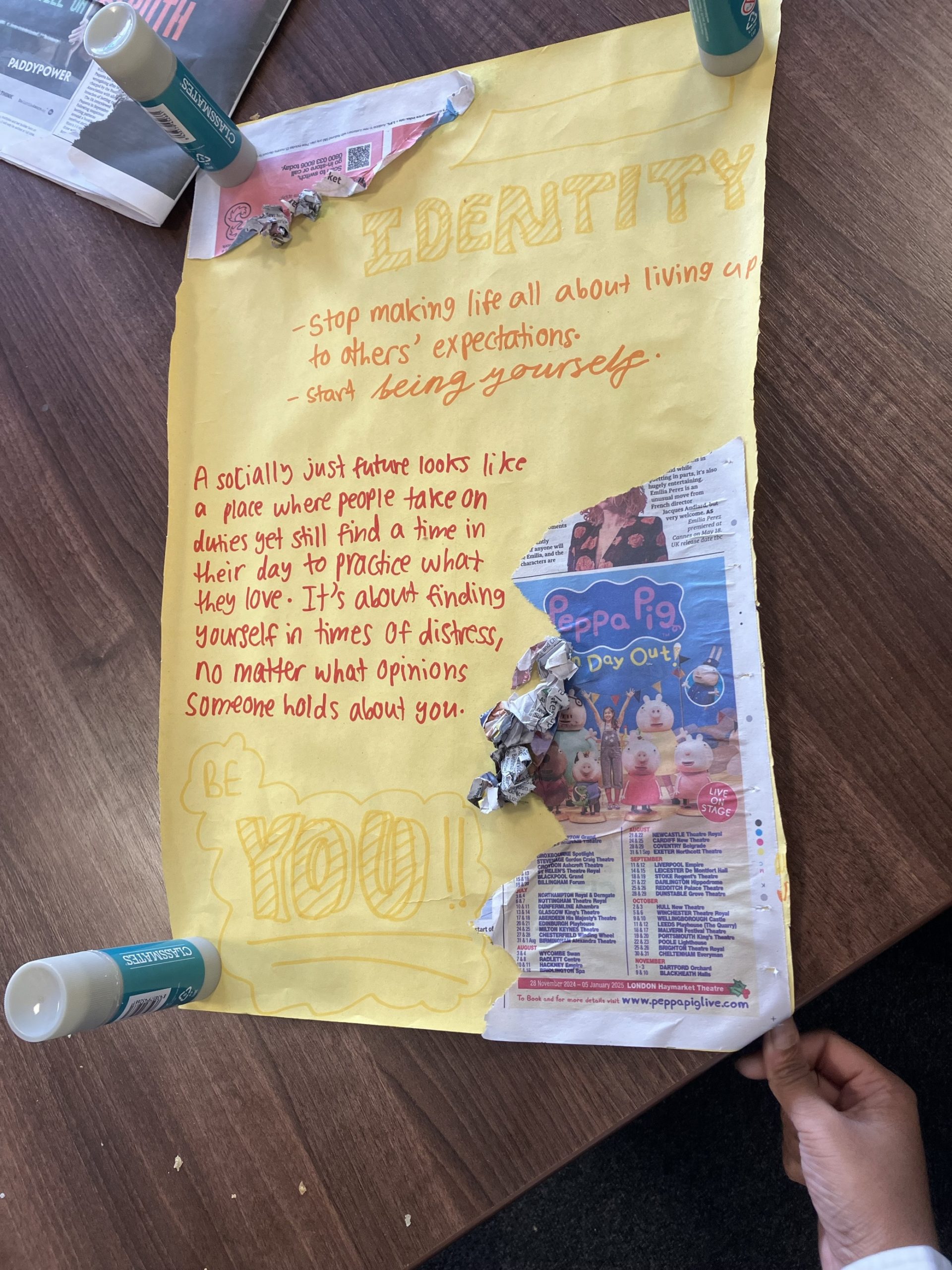
IDENTITY: Stop making life all about living up to others’ expectations. Start being yourself. A socially just future looks like a place where people take on duties yet still find a time in their day to practice what they love. It’s about finding yourself in times of distress, no matter what opinions someone holds about you. BE YOU!!
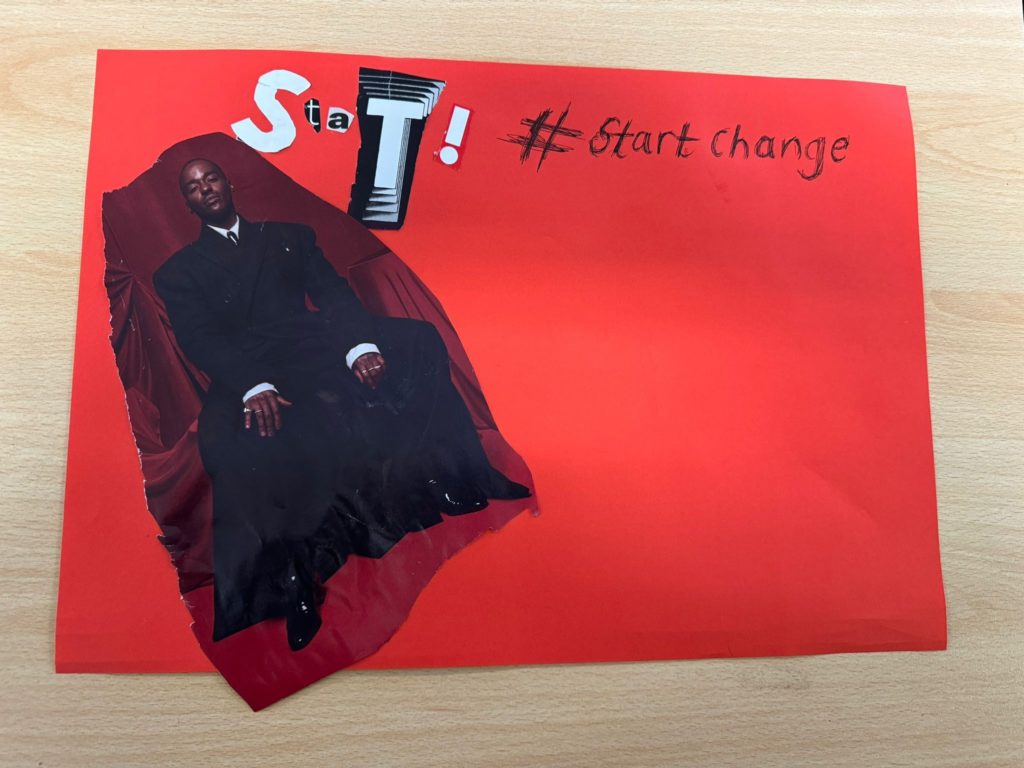
START! #startchange
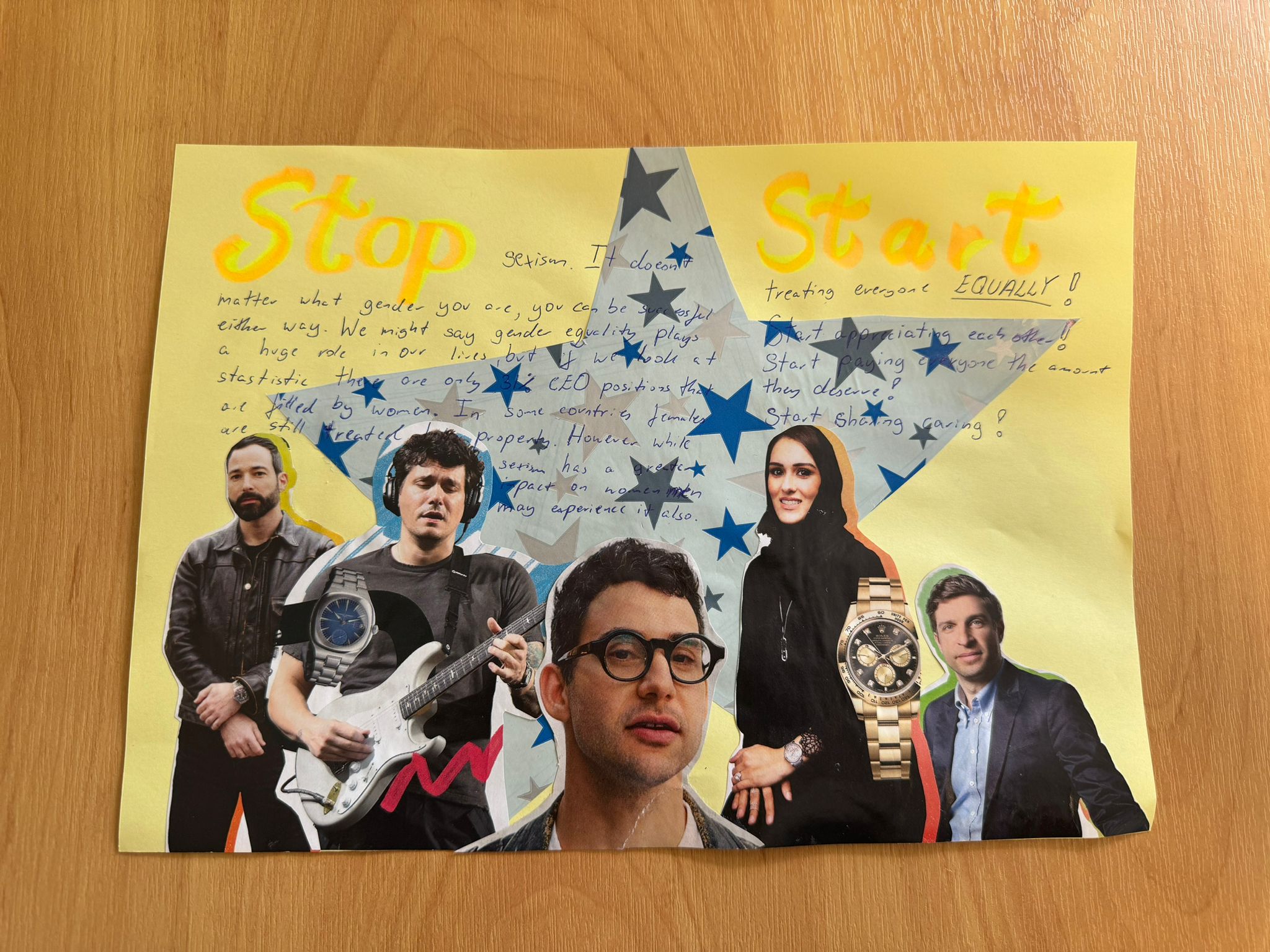
STOP sexism. It doesn’t matter what gender you are, you can be successful either way. We might say gender equality plays a huge role in our lives, but if we look at statistics there are only 31% CEO positions that are filled by women. In some countries females are still treated improperly. However while sexism has a greater impact one women, men may experience it also. START treating everyone EQUALLY! Start appreciating each other! Start paying everyone the amount they deserve! Start sharing, caring!
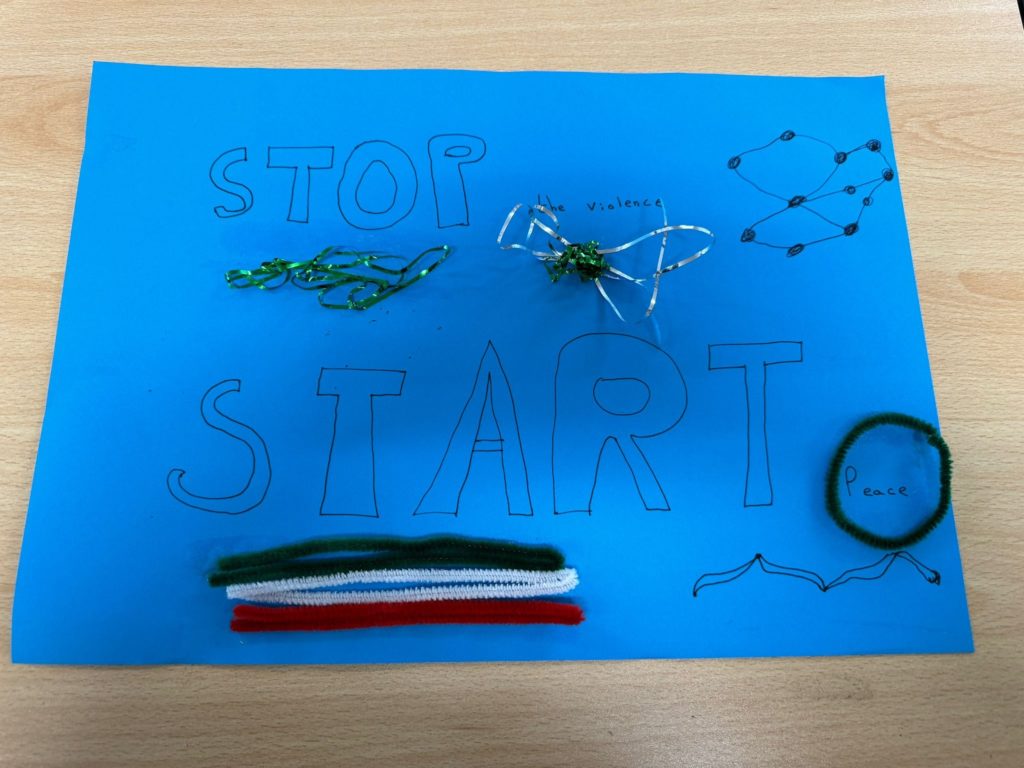
STOP the violence | START peace
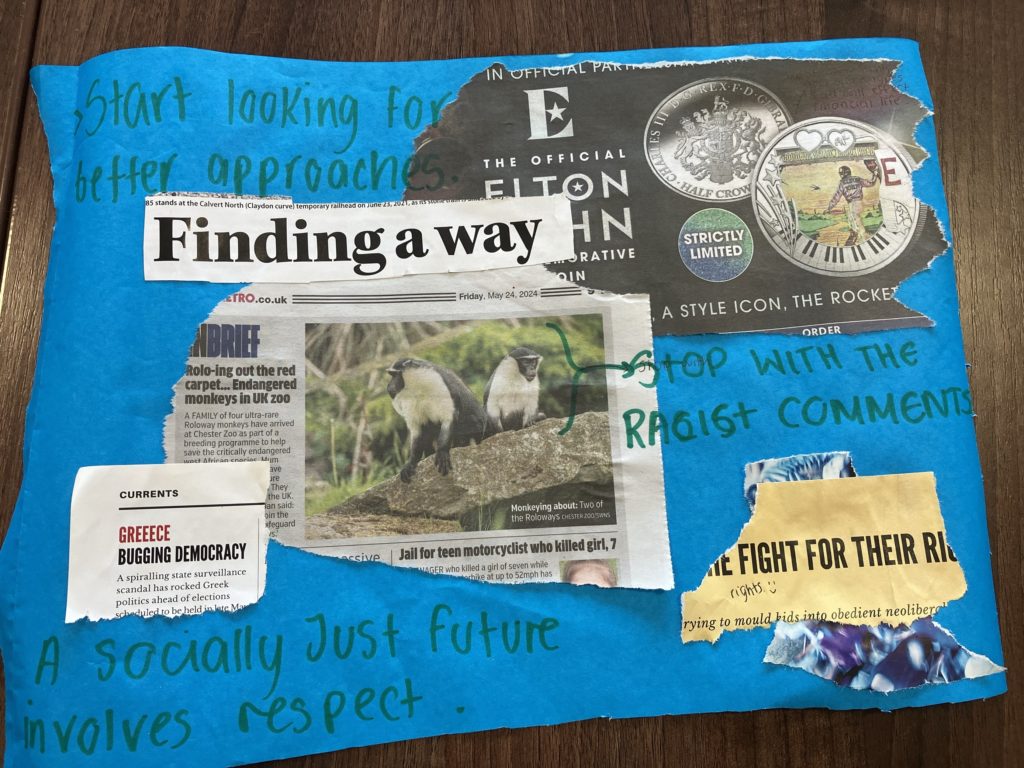
Start looking for better approaches | Stop with the racist comments | A socially just future deserves respect
Photovoice Narratives
Prior to the workshops, the same young people worked with us by taking photos of things in their lives that are meaningful to them, and that may express their views on race, faith and/or other equality issues. We share some of these photos below, with paraphrased and quoted explanations from the young people.
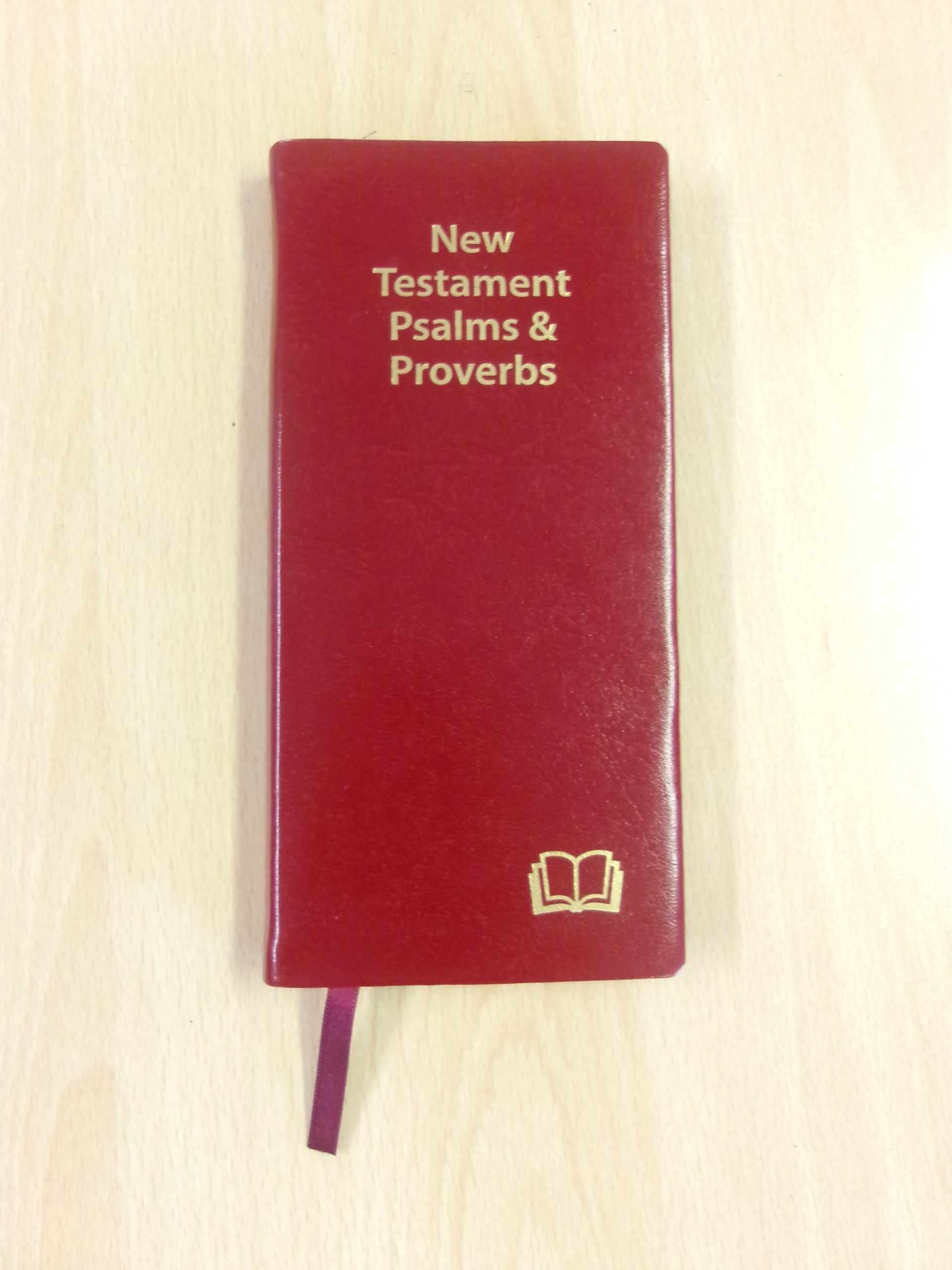
The topic of the project is equality, and the Bible represents equality more than any other book.
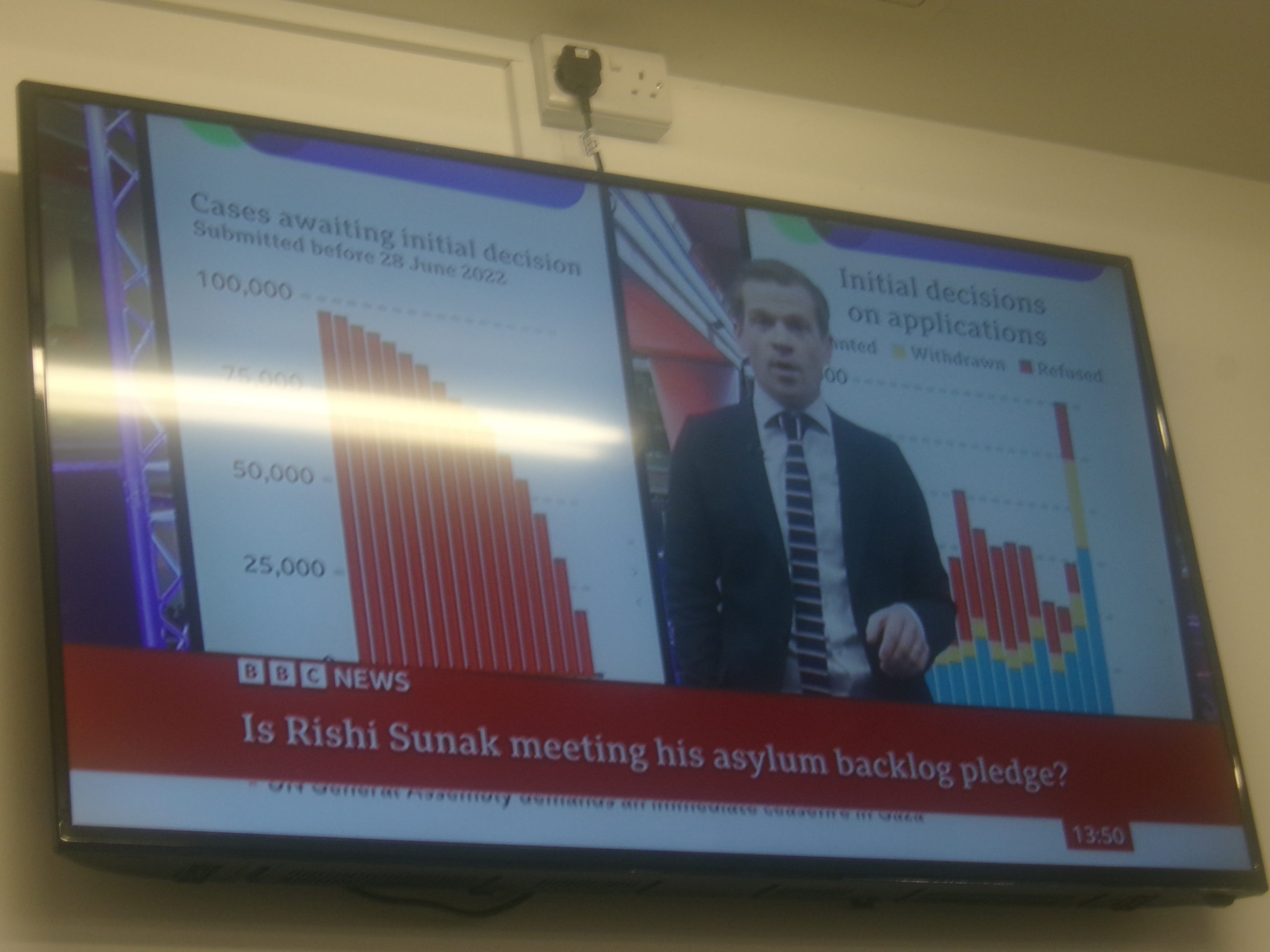
Government political discourse affects young people, especially the racially minoritised: “I just want to showcase that simple things like people saying they don’t want these types of people in their country […] really contribute into a big thing like Rishi Sunak saying he wants to send all asylum seekers back”.
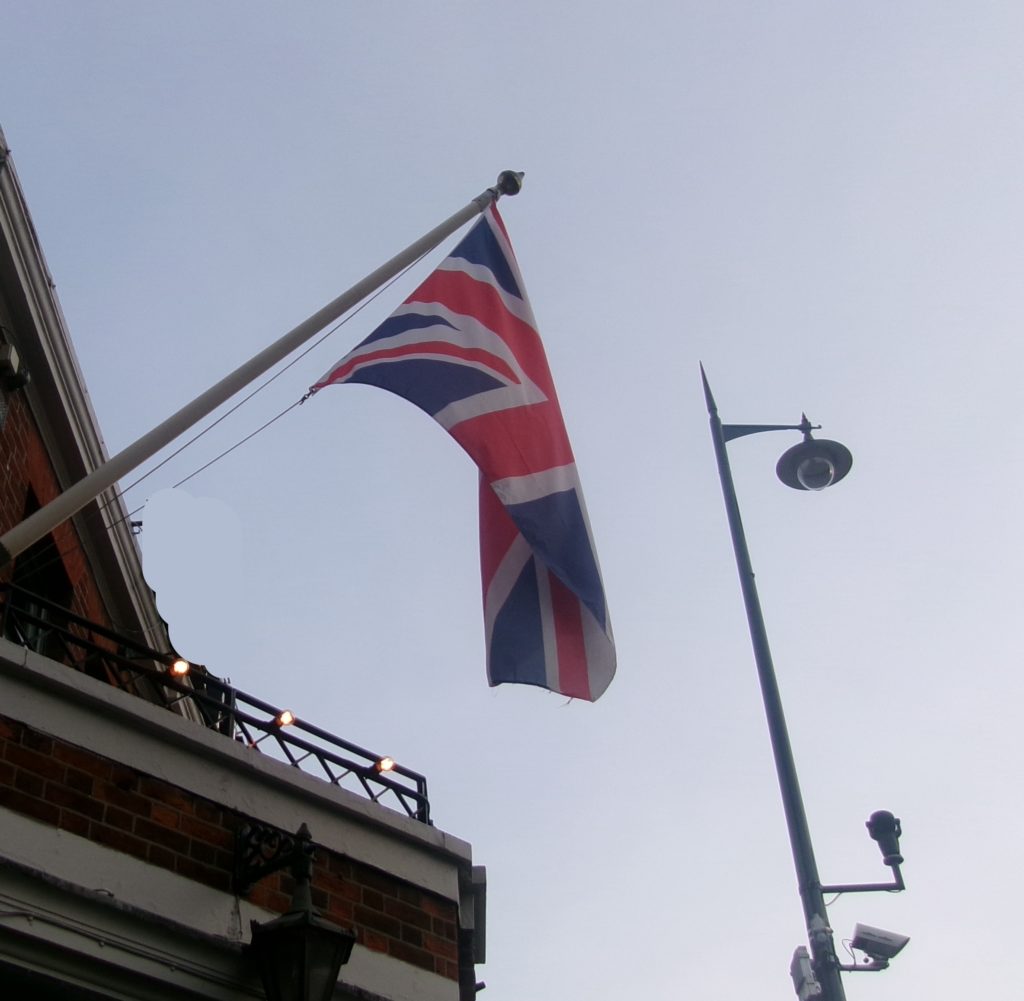
This young person shared that while she loves her ancestral country, she views Britain as her home. As an immigrant from Eastern Europe, she feels a responsibility to love Britain, even as she balances her dual identity.
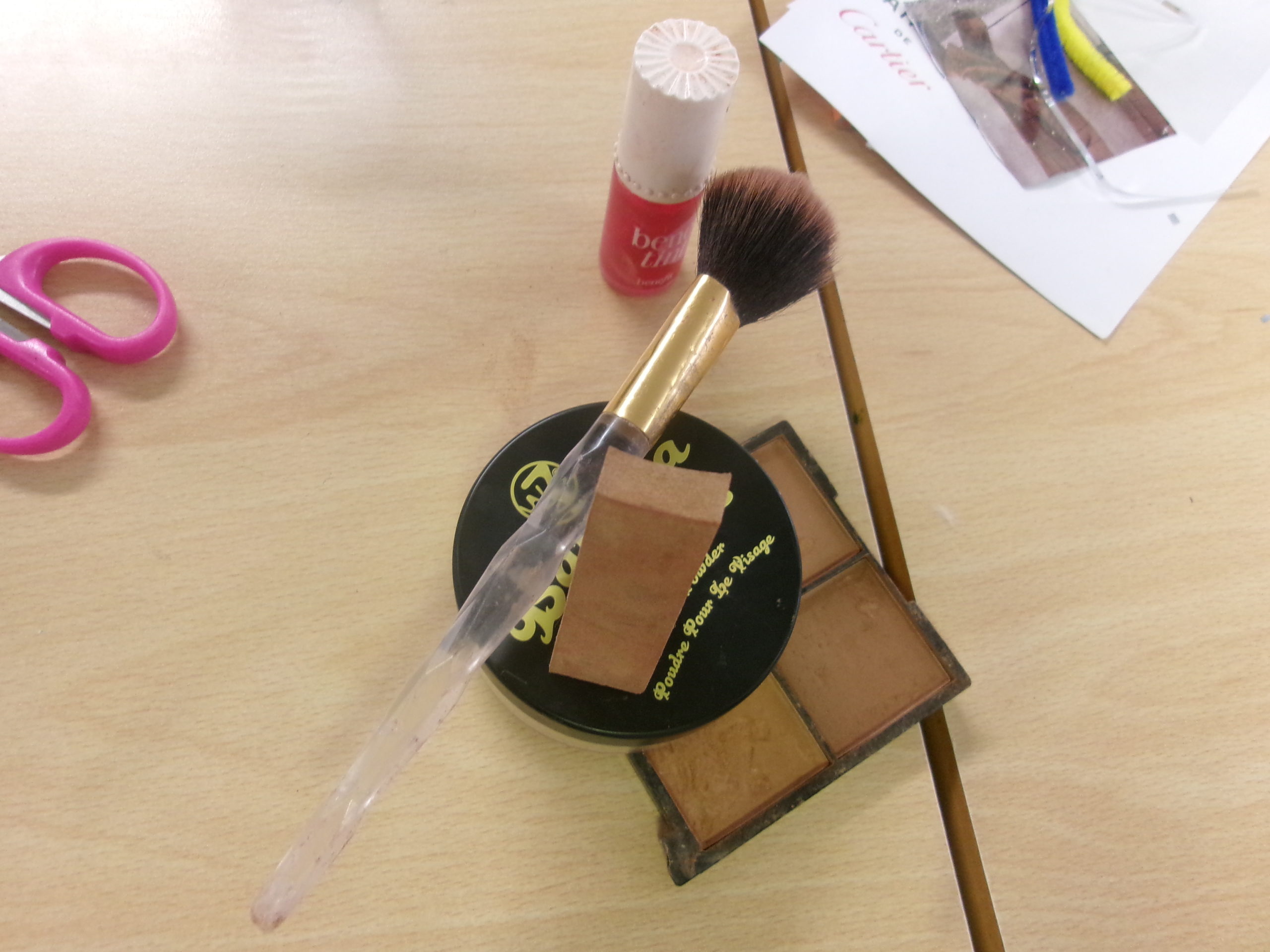
Makeup can be a wellbeing tool for girls, even though it is linked to debates about gender inequality: “I do my make-up anytime for no reason or when I look upset ‘cos it is when I feel bad”.
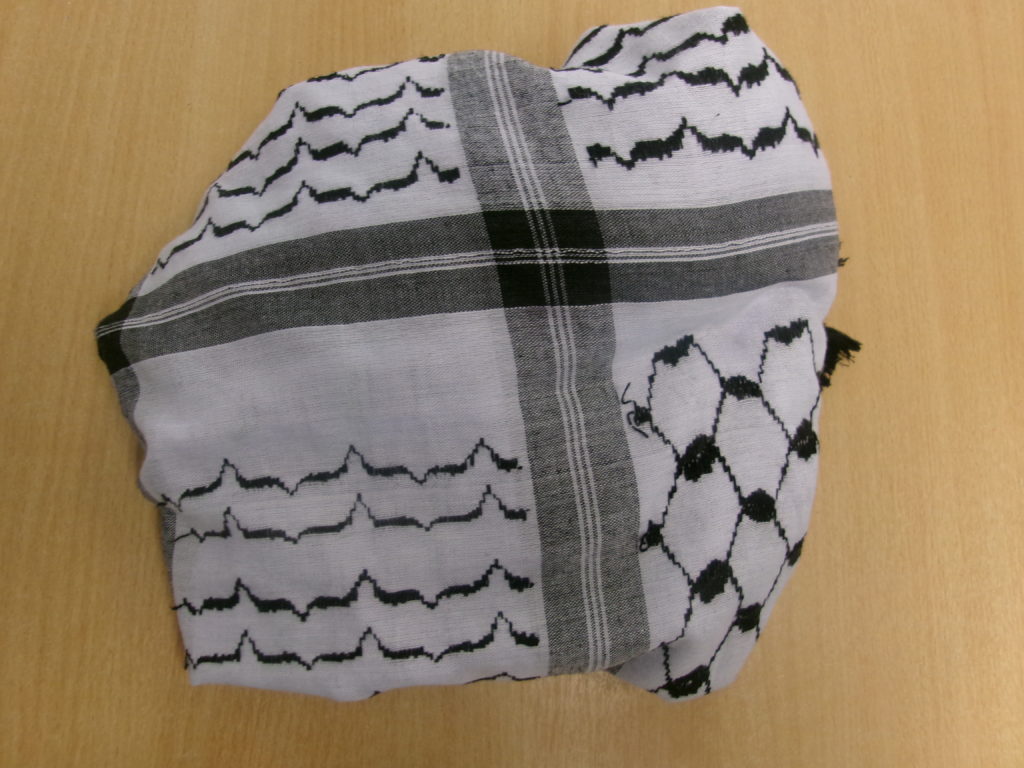
With the keffiyeh, “leaves of an olive tree represent strength and perseverance because olive trees are going [through] very harsh conditions. Bold lines represent the ancient trade routes and merchants. The [geometrical pattern] represent the fish [and fishery]… One should wear it to express their feelings and not be afraid of their belief. And there should be peace. The world is so developed now so there should be peace.”
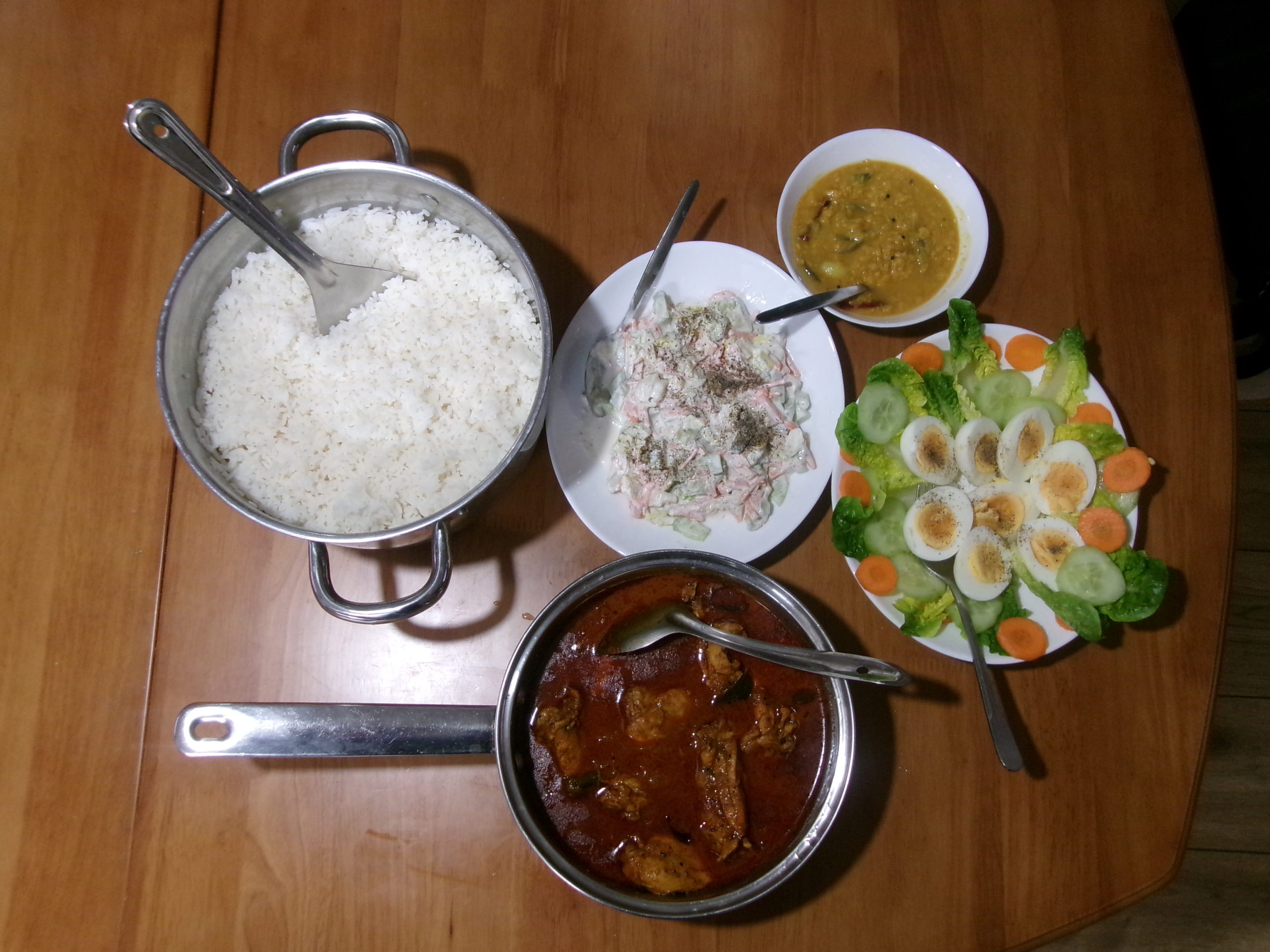
This young person feels deeply connected to her South Asian heritage through the food her mother cooks, which she loves and eats daily. However, she shared that when she used to bring these traditional dishes for lunch at school, she didn’t like the way other students reacted. As a result, she stopped bringing them to school.
